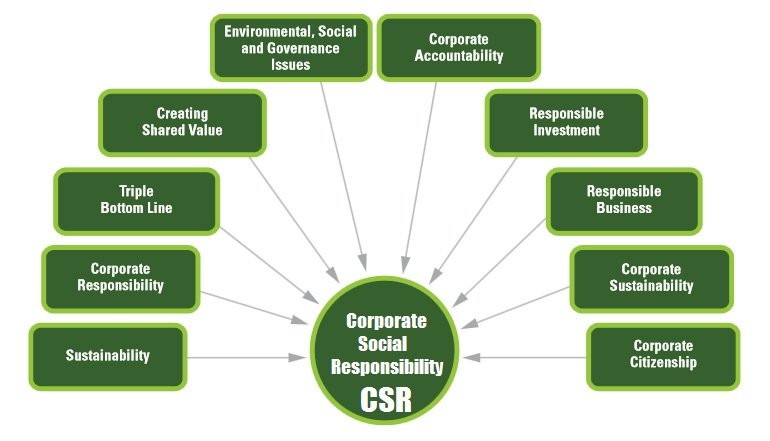Corporate social responsibility (CSR) is a broad term that encompasses a company’s efforts to operate in a way that is beneficial to society. This can include a variety of activities, such as environmental protection, employee welfare, and community development.
There are many reasons why companies choose to engage in CSR. Some do it out of a genuine commitment to making a positive impact on the world. Others see it as a way to improve their reputation and attract customers, employees, and investors. Still others believe that CSR can help them reduce costs and improve efficiency.
Whatever the reason, there is no doubt that CSR is becoming increasingly important to businesses. A recent survey by the World Economic Forum found that 84% of CEOs believe that CSR is important to their company’s long-term success.
There are many different ways that companies can engage in CSR. Some common activities include:
- Environmental protection: This can include reducing pollution, conserving energy, and using sustainable materials.
- Employee welfare: This can include providing safe working conditions, offering competitive wages and benefits, and promoting diversity and inclusion.
- Community development: This can include supporting local schools, donating to charities, and volunteering time and resources.
CSR can be a complex and challenging undertaking, but it can also be very rewarding. Companies that engage in CSR can improve their reputation, attract top talent, and build stronger relationships with their customers and communities.
Here are some examples of how CSR can benefit businesses:
- Improved reputation: A company that is seen as being socially responsible is likely to have a better reputation with customers, employees, and investors. This can lead to increased sales, improved employee morale, and lower costs of capital.
- Increased customer loyalty: Customers are more likely to do business with companies that they believe are making a positive impact on the world. This can lead to increased sales and market share.
- Attraction and retention of top talent: Employees are more likely to want to work for companies that they believe are making a positive impact on the world. This can lead to a more talented workforce and lower turnover rates.
- Reduced costs: CSR can lead to reduced costs in a number of ways. For example, companies that reduce their environmental impact can save money on energy and waste disposal costs. Companies that promote diversity and inclusion can improve employee morale and productivity, which can lead to lower costs.
CSR is not without its challenges. One challenge is that it can be difficult to measure the impact of CSR initiatives. Another challenge is that CSR can be expensive. However, the benefits of CSR can outweigh the challenges.
If you are considering engaging in CSR, there are a few things you should keep in mind:
- Make sure it is authentic: CSR should be genuine and not just a marketing ploy. Customers and employees can spot a fake from a mile away.
- Be transparent: Be open about your CSR initiatives and let your stakeholders know how you are making a difference.
- Measure your results: Track the impact of your CSR initiatives so you can see how they are benefiting your business and society.
CSR is a growing trend that is here to stay. Businesses that engage in CSR are likely to see a number of benefits, including improved reputation, increased customer loyalty, attraction and retention of top talent, and reduced costs.

